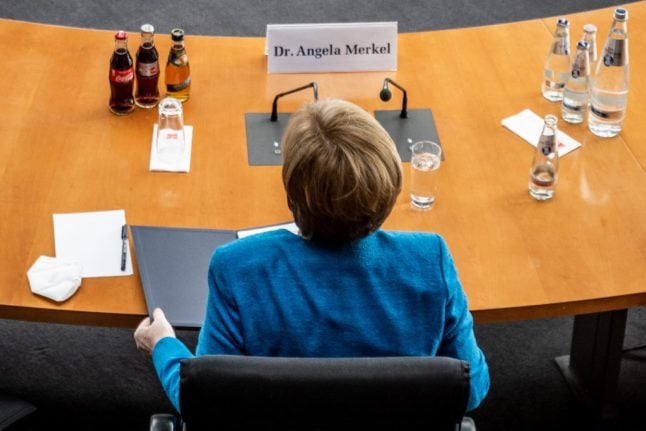Armin Laschet, the head of Merkel’s CDU, won a bitter fight this week against Markus Söder, head of the smaller Bavarian CSU, to lead the conservatives into September’s election.
The vicious competition between Laschet, who is backed by the CDU’s leadership, and Söder, who is more popular among the public, has left the conservatives bitterly divided.
In an interview on Friday, Söder said he was not impressed by the reasoning behind Laschet’s candidacy, suggesting that it was not progressive enough.
READ ALSO: Meet Armin Laschet, the king of comebacks grasping for Merkel’s throne
“I was not convinced by the rationale behind the candidacy. I stand for modernisation in the programme,” Söder told the daily Süddeutsche Zeitung.
“I think for example, that modern economic policy must reconcile both the environmental and economic imperatives,” he said, rejecting claims that he was positioning himself too close to the increasingly popular Greens.
Asked if he was the “more modern candidate” of the two, Söder said that would be a “presumptuous exaggeration”.
But he later added that his “approach is perhaps a little more progressive”, be it in the areas of environmental policy, gender equality or the high-tech agenda.
The vicious infighting within Merkel’s CDU-CSU alliance has left voters looking elsewhere.
READ ALSO: Post-Merkel: Who stands the best chance of becoming Germany’s next chancellor?
Polls earlier in the week even had the Greens overtaking the conservatives to top the surveys.
The latest INSA survey shows the conservatives back up on top but only with a one percentage point lead above the Greens at 23 percent.




 Please whitelist us to continue reading.
Please whitelist us to continue reading.
Member comments